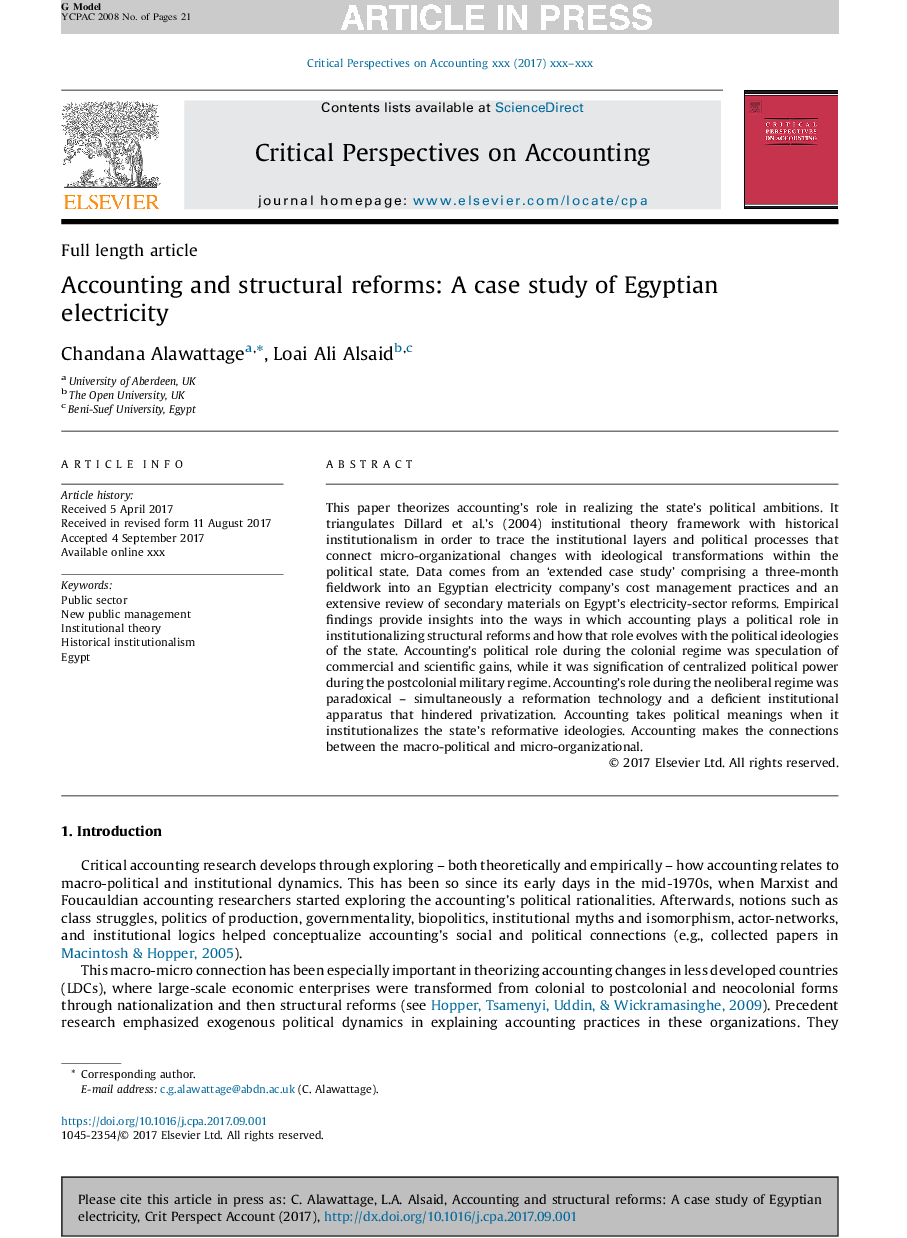| Article ID | Journal | Published Year | Pages | File Type |
|---|---|---|---|---|
| 7412082 | Critical Perspectives on Accounting | 2018 | 21 Pages |
Abstract
This paper theorizes accounting's role in realizing the state's political ambitions. It triangulates Dillard et al.'s (2004) institutional theory framework with historical institutionalism in order to trace the institutional layers and political processes that connect micro-organizational changes with ideological transformations within the political state. Data comes from an 'extended case study' comprising a three-month fieldwork into an Egyptian electricity company's cost management practices and an extensive review of secondary materials on Egypt's electricity-sector reforms. Empirical findings provide insights into the ways in which accounting plays a political role in institutionalizing structural reforms and how that role evolves with the political ideologies of the state. Accounting's political role during the colonial regime was speculation of commercial and scientific gains, while it was signification of centralized political power during the postcolonial military regime. Accounting's role during the neoliberal regime was paradoxical - simultaneously a reformation technology and a deficient institutional apparatus that hindered privatization. Accounting takes political meanings when it institutionalizes the state's reformative ideologies. Accounting makes the connections between the macro-political and micro-organizational.
Related Topics
Social Sciences and Humanities
Business, Management and Accounting
Accounting
Authors
Chandana Alawattage, Loai Ali Alsaid,
